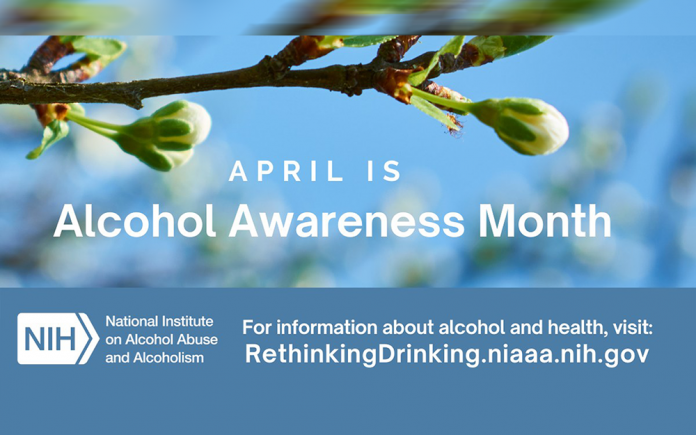
By Fire Chief Sam DiGiovanna
April marks National Alcohol Awareness Month, a time to highlight the dangers of alcohol misuse. It is reported that alcohol contributed to more than 200 diseases and injury-related health conditions, ranging from liver diseases, road injuries, and violence, to cancers, cardiovascular diseases, suicides, tuberculosis, and HIV/AIDS. The National Institutes of Health (NIH) offers additional facts and statistics about alcohol misuse in the United States.
The Centers for Disease Control and Prevention’s (CDC) Dietary Guidelines for Alcohol defines drinking in moderation as one drink or less in a day for women and two drinks or less in a day for men. The NIH defines a standard drink as having about 14 grams of pure alcohol, which can be found in:
- 12 ounces of regular beer, about 5% alcohol
- 5 ounces of wine, about 12% alcohol
- 1.5 ounces of distilled spirits, about 40% alcohol
Warning Signs of Alcohol Misuse
As we all cope with the challenges in our daily lives, it is important to be sure to stay healthy and resilient. Alcohol misuse is any consumption of alcohol that exceeds the recommended daily limits and can include uncontrolled drinking and a preoccupation with alcohol. You may have a drinking problem if you have any of the following symptoms:
- Inability to stop drinking even if you want to
- Difficulty controlling the amount you drink
- Challenges in your personal or professional relationships due to drinking
- Hoarding, stashing, or excessively seeking out alcohol
- Risky behaviors due while drinking, such as driving, swimming, or unsafe sex
- Combining alcohol with other addictive substances
- Drinking to manage emotional stress or trauma
What can I do?
Here are some steps you can take today to ensure that alcohol doesn’t become a problem for you or your loved ones:
- Take this short self-assessment to evaluate your drinking habits and share it with your friends and family. (https://www.rethinkingdrinking.niaaa.nih.gov/How-much-is-too-much)
- Educate yourself about the basics of alcohol use, including drink limits, and work to stay within those limits.
If you feel you need assistance due to alcohol or substance abuse, contact a licensed qualified therapist or organization that specializes in substance abuse.










































